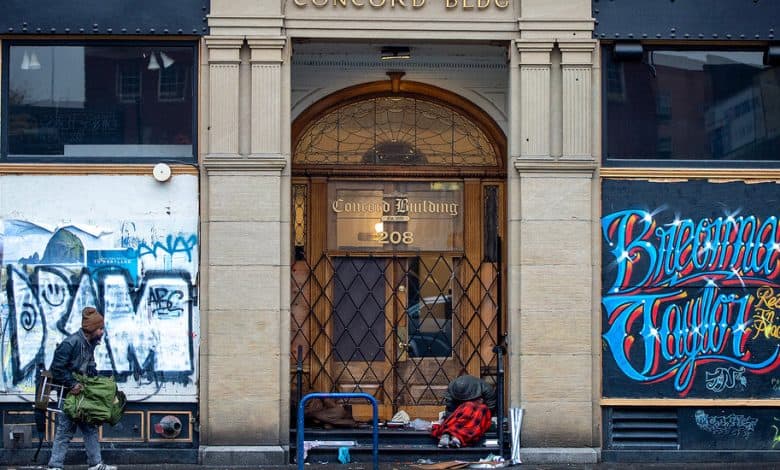Oregon Is Recriminalizing Drugs. Here’s What Portland Learned.

When Oregon embarked on a landmark plan three years ago to decriminalize hard drugs, it wagered that a focus on treatment over punishment would create a new model for drug policy around the country.
But after a deluge of overdose deaths and frequent chaos in the streets of Portland, Gov. Tina Kotek signed into law on Monday a measure to restore criminal penalties for drug possession. It brought to an end a key portion of one of the nation’s most ambitious attempts to find alternatives other than jail for drug users, embodied in a 2020 voter initiative known as Measure 110.
The rollback has supporters among a wide range of public officials, including Mayor Ted Wheeler of Portland, who found himself presiding over a series of crises since taking office in 2016. They included surging unsheltered homelessness, turbulent street protests, an exodus of downtown businesses, record numbers of homicides, the rapid spread of fentanyl and soaring overdose deaths.
Over the past year, Mr. Wheeler has set out to restore order. He has battled in court to ban daytime camping and tried to establish mass shelter locations (known in Portland as TASS sites) for those without housing. After initially supporting budget cuts to the police department, he has pushed to increase the law enforcement presence in the city and to crack down on crime.
And he concluded that it was time to restore criminal penalties for hard drug possession. Under the new law, people caught with small amounts of drugs like fentanyl and methamphetamine could face up to 180 days in jail, although lawmakers also built in a series of offramps that allow people in many cases to get treatment instead of confinement.
Mr. Wheeler sat down with The New York Times recently to discuss the shift on drug policy and his city’s future. Here are excerpts from the interview, edited and condensed for length and clarity.
